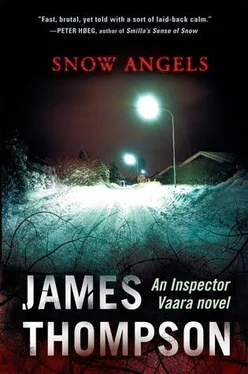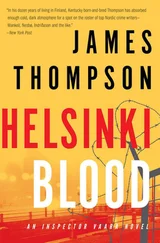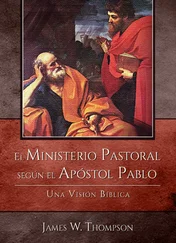James Thompson - Snow angels
Здесь есть возможность читать онлайн «James Thompson - Snow angels» — ознакомительный отрывок электронной книги совершенно бесплатно, а после прочтения отрывка купить полную версию. В некоторых случаях можно слушать аудио, скачать через торрент в формате fb2 и присутствует краткое содержание. Жанр: Полицейский детектив, на английском языке. Описание произведения, (предисловие) а так же отзывы посетителей доступны на портале библиотеки ЛибКат.
- Название:Snow angels
- Автор:
- Жанр:
- Год:неизвестен
- ISBN:нет данных
- Рейтинг книги:4 / 5. Голосов: 1
-
Избранное:Добавить в избранное
- Отзывы:
-
Ваша оценка:
- 80
- 1
- 2
- 3
- 4
- 5
Snow angels: краткое содержание, описание и аннотация
Предлагаем к чтению аннотацию, описание, краткое содержание или предисловие (зависит от того, что написал сам автор книги «Snow angels»). Если вы не нашли необходимую информацию о книге — напишите в комментариях, мы постараемся отыскать её.
Snow angels — читать онлайн ознакомительный отрывок
Ниже представлен текст книги, разбитый по страницам. Система сохранения места последней прочитанной страницы, позволяет с удобством читать онлайн бесплатно книгу «Snow angels», без необходимости каждый раз заново искать на чём Вы остановились. Поставьте закладку, и сможете в любой момент перейти на страницу, на которой закончили чтение.
Интервал:
Закладка:
“Make her funeral arrangements.”
“You serious?”
“Please, I’m begging you. Get her the best of everything, it doesn’t matter what it costs.”
My sense of the ridiculous multiplies itself. He took my wife away from me in life, wants to give her back in death. “Sure, no problem.”
He lifts his head off my shoulder, gives me a soulful look, like we’re brothers sharing the loss of a family member. “Thank you,” he says.
I leave him alone to his grief.
I go to my office and call Esko the coroner. “Tell me about the autopsy.”
He hesitates, maybe trying to think how to spare my feelings. Having people try to spare my feelings is getting tiresome. “How much do you want to know?”
“As much as I need to.”
“As far as forensics go, I didn’t find anything that will help you.”
“Was she too badly damaged to gather evidence?”
“No. Given her external appearance, the body was in good condition. Her internal organs, in relative terms, were unscathed.”
“She looked burned to a cinder. How could that be?”
He clears his throat. “The intense heat from the gasoline melted her subcutaneous layers of fat. The fat leached out of her body and soaked out into her clothes, which acted as a wick. That’s why the fire smoldered for so long after Antti put it out. Rubber fires are hard to extinguish as well. In any case, her organs were well-preserved.”
“So you’re certain the fire killed her, it wasn’t an attempt to cover up another murder method.”
“She had soot from the burning tire inside her trachea. She was alive when the killer lit it.”
I had hoped she was already dead, had suffered less torment. I’m tempted to thank Esko for his efforts but don’t feel like it. “Her husband asked me to check into funeral arrangements. When will you release her body?”
“There’s nothing more to learn from it, he can take possession at any time.”
I ring off and call Jorma the undertaker. I don’t mention I’m calling about burying my ex-wife, so he doesn’t offer condolences, for which I’m grateful.
“Funeral arrangements are difficult this time of year,” he says, “even grave diggers want to stay home over the holidays. If her family wishes to put this behind them, if it would help with their grief, I could make funeral arrangements for tomorrow. Otherwise, I suggest waiting a few days.”
I tell him I’ll check with her husband.
“Did you know that Sufia Elmi’s funeral is tomorrow?” Jorma asks.
“Here in Kittila? I would have thought her parents would want to take her home to Helsinki. Why did they wait so long?”
“Her father insisted that her funeral be here and in accordance with Islamic tradition. I had difficulty seeing to all the preparations. There was a ceremonial washing of the body to be performed by the family, certain burial shrouds I had to order, things I’d never dealt with before. Mr. Barre was insistent that everything be done in a most precise way, and it took me a few days.”
I say thanks and hang up.
Antti bagged and tagged the contents of Heli’s purse. I retrieve them from the evidence locker and sort through them. Just the usual stuff. Makeup, wallet, dirty Kleenex, a hairbrush and her cell phone. I take the phone out of the plastic bag and scroll through the menu. Received calls and dialed numbers, received and sent messages. I find nothing noteworthy.
The phone is a new Nokia N82, which does just about everything and costs as much as a month’s rent for an average apartment. It has a Global Positioning System, an MP3 music player, a digital camera and Internet-access capability. I check the downloaded files, mostly a bunch of useless crap from diet and exercise websites, and then finally I find the connection I’ve been hoping for: the download from the true-crime website in Heikki’s computer, about the murder of Elizabeth Short, the Black Dahlia.
Maybe I should be surprised, but I’m not. Ever since I found Heikki’s suicide note, my instincts told me that Heli put him up to murder. Not because I wanted to vilify her, but because I thought that she, more than anyone else involved, possessed the requisite tools-her sexuality and knowledge of Heikki’s religious beliefs-to turn him into a killer. It makes me sad, because now I’m convinced someone I once loved committed an act so evil.
The question remains, if Heli and Heikki killed Sufia, who killed Heli? The field is narrowing and the chief was right. If I arrest everybody, someone will talk. I send the chief a text message, ask him to have Heli’s and Seppo’s residence in Helsinki searched with an eye for true-crime material. I don’t tell him I’m investigating Heli and not Seppo, so he won’t think I’m off on a wild, grief-stricken tangent. The evidence is provocative but not damning. I decide to keep my suspicion of her guilt to myself for the time being, to keep from being accused of chasing ghosts.
My case notes are in a pile in front of me. I browse through them, look for something I’ve forgotten that could explain why Seppo or Peter, or both of them together, might want to kill Heli. I run across my note to check out Abdi Barre. I never did it.
Things Abdi said come back to me. He claimed he can’t pass the Finnish medical boards because his language skills are insufficient. Yet his Finnish is excellent, more proper than mine. He feared Sufia’s death would go unavenged, asked me if I believed twelve years in prison was adequate punishment for what was done to his daughter, warned me that I had to find her murderer. I more or less told him Seppo was guilty, then Seppo walked free and married Heli. Abdi had called me, angry, distraught.
I remember reading that in Somalia and Rwanda, filling a tire with gasoline and burning the victim alive has sometimes been used as a form of execution. The method was popularized in South Africa by the African National Congress during the eighties. They called it a tire necklace, the verb is necklacing. It was also used in the Mogadishu area during the early years of the Somali civil war. Abdi has a potential source of knowledge about how to commit the crime. I know nothing about his activities during the conflict. He could have seen it done or even necklaced others in the past. Abdi has motive: an eye for an eye. He could have taken from Seppo as he believed Seppo had taken from him.
We have minority populations in Finland-Lapps, Gypsies and Swedish-speaking Finns-but they’re all of a long-standing and homegrown kind. Between five and six thousand Somali refugees poured into the country in the early 1990s, our first major experience with foreigners. A lot of us had never seen a black person before the Somalis arrived.
At first, popular feeling was benevolent. Most Finns were pleased to have an opportunity to help the downtrodden. Then we realized the refugees had to be supported by our rather generous welfare system. They got apartments, televisions, an income, all on the public dole. They often wear more expensive clothes than our working class can afford, because most Muslims don’t drink up their money like we do and can use it for other things. Public resentment grew and has never abated.
I remember what I’ve read about the Somali civil war. The Somalis who took flight during that time were mainly Daarood clan members, escaping violence at the hands of the Hawiye clan. As Somalia disintegrated, the Daarood residents of Mogadishu became the objects of revenge killings. In Somalia there was chaos, clan warfare, genocide, a mass exodus. Few people had passports. It would have been easy to steal an identity and go undiscovered in the flood of refugees. If Abdi had never been a doctor in the first place, it would explain his inability to practice medicine here.
Читать дальшеИнтервал:
Закладка:
Похожие книги на «Snow angels»
Представляем Вашему вниманию похожие книги на «Snow angels» списком для выбора. Мы отобрали схожую по названию и смыслу литературу в надежде предоставить читателям больше вариантов отыскать новые, интересные, ещё непрочитанные произведения.
Обсуждение, отзывы о книге «Snow angels» и просто собственные мнения читателей. Оставьте ваши комментарии, напишите, что Вы думаете о произведении, его смысле или главных героях. Укажите что конкретно понравилось, а что нет, и почему Вы так считаете.












